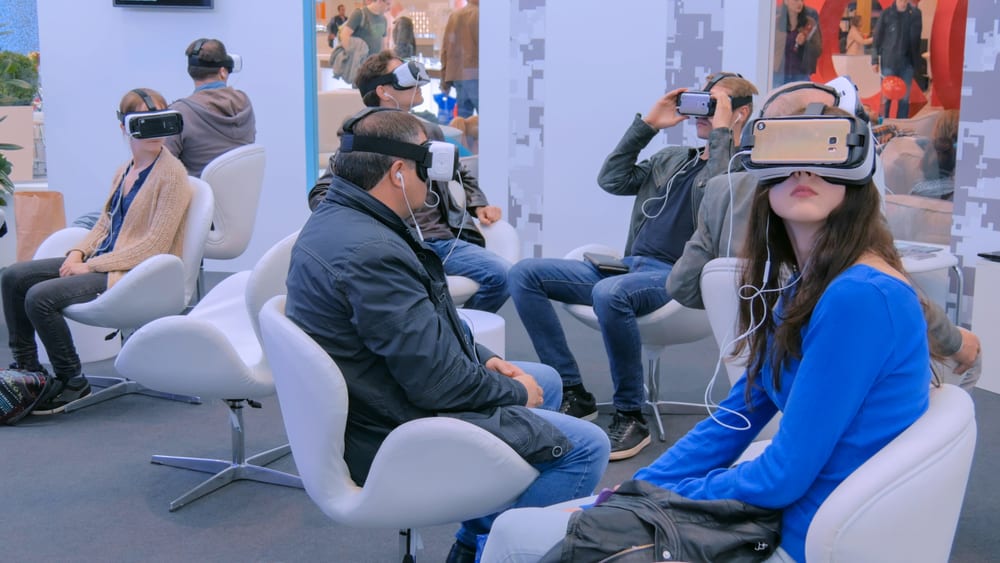Over the last couple of years, event technology has jumped leaps and bounds. Today, event organizers have super-powerful tools to drive engagement and inspiration with their audiences, and among them, there is really something game-changing: Virtual Reality.
Using VR, event organizers can today create truly immersive and interactive experiences, unparalleled by any common format of an event. Some creative ways in which event organizers can make use of virtual reality in their events to enhance engagement and provide unique, memorable experiences are as follows.
1. Creating Immersive Brand Experiences
Branded experiences at events are just an emerging trend from the last couple of years. Event organizers can use VR to help brands develop completely immersive environments through which attendees would experience a product or service for the first time.
In this regard, for instance, an automobile brand might let attendees test drive its latest model virtually. More importantly, these experiences will be memorable and really engaging since the participants can relate to the brand on a personal note.
It also crafts customized VR experiences for brands to always raise the ante at all kinds of events and be etched into the memory of their attendees.
2. Virtual Tours of Venues
Event organizers know that venue selection is critical to event planning. With VR, potential clients can tour a venue without physically being there.
With virtual tours of venues, an event organizer allows clients to take a venue tour concerning layout options, how to set up rooms, and design possibilities from their distant locations. This becomes most helpful when there is a big venue or the clients are foreign. The use of VR in previewing venues lets the event organizer create an easier way for both the client and himself to choose a venue while saving much time.
3. Training and Team-Building Program Development
These are normally accompanied by small training or something like a teambuilding exercise. VR has the ability to make all these activities much more interesting and, at the same time, more effective.
For example, virtual team-building would include virtual escape rooms where a group may work on problem-solving and collaboration virtually. It simulates, in training, situations that may be common in healthcare or engineering and allows one to practice those skills in a very safe environment.
With VR included in the training activities, event organizers will make the experience among attendees even more lively and interactive.
4. Presentation and Keynote Transformation
Keynotes and presentations are generally the showstoppers of events, but very few traditional methods can retain audience interest throughout. Virtual reality events enable the speakers to take their presentations to the next level. With VR, they can create dynamic visuals, transport attendees to different environments, or present data interactively.
For instance, a sustainability specialist might use VR to demonstrate environmental impacts around the world. This allows the speakers to make their case more and will also leave a mark in the minds of attendees. Event organizers can also work along with speakers to help them with their presentations so that audiences are kept in tether throughout the event.
5. VR Networking Lounges
Networking features at so many events, but traditional networking areas are usually formal, even intimidating. VR networking lounges offer something quite different. This allows attendees to choose an avatar, explore virtual spaces, and get in touch in a casual manner.
Event organizers will be able to create custom VR lounges with themes, such as a futuristic lounge for a tech event. The lounge nurtures a unique networking experience that will help attendees make memorable connections.
6. Virtual Reality-based Voting and Q&A
For event organizers, the most important one would be the engagement factor. And VR opens completely new frontiers for the engagement of attendees. The real-time VR polling and Q&A capabilities enable immediate feedback and interaction.
Taking up a panel discussion, for example, questions would be submitted via VR to go up on-screen for the speakers to answer. Keep the participants engaged, even the virtual ones, enrichment of audience engagement.
7. Hybrid Events and Virtual Participation
As hybrid events become more the norm, VR helps bridge that gap even further between live and virtual audiences. Virtual reality events have this added capability of making remote attendees feel more connected since they would view an event just as if they were there in person.
A remote attendee might, for example, walk through a virtual showroom of products or even network in sessions. The fluidity of the experience that keeps remote participants from feeling excluded maintains engagement.
Conclusion
It is transitioning the event business into fully immersive, interactive experiences, be it reimagining the way of brand experience, networking enabled by VR, or presentations. VR opens up newer avenues for event organizers to be more engaging and conduct some of the most memorable events.
If some event organizers seek premium VR solutions in Dubai, then Limina Studios is the best professional team for the development of any event with an impactful VR experience. Avail the services to create state-of-the-art virtual reality experiences that will inspire and amaze your audience like never before.






















